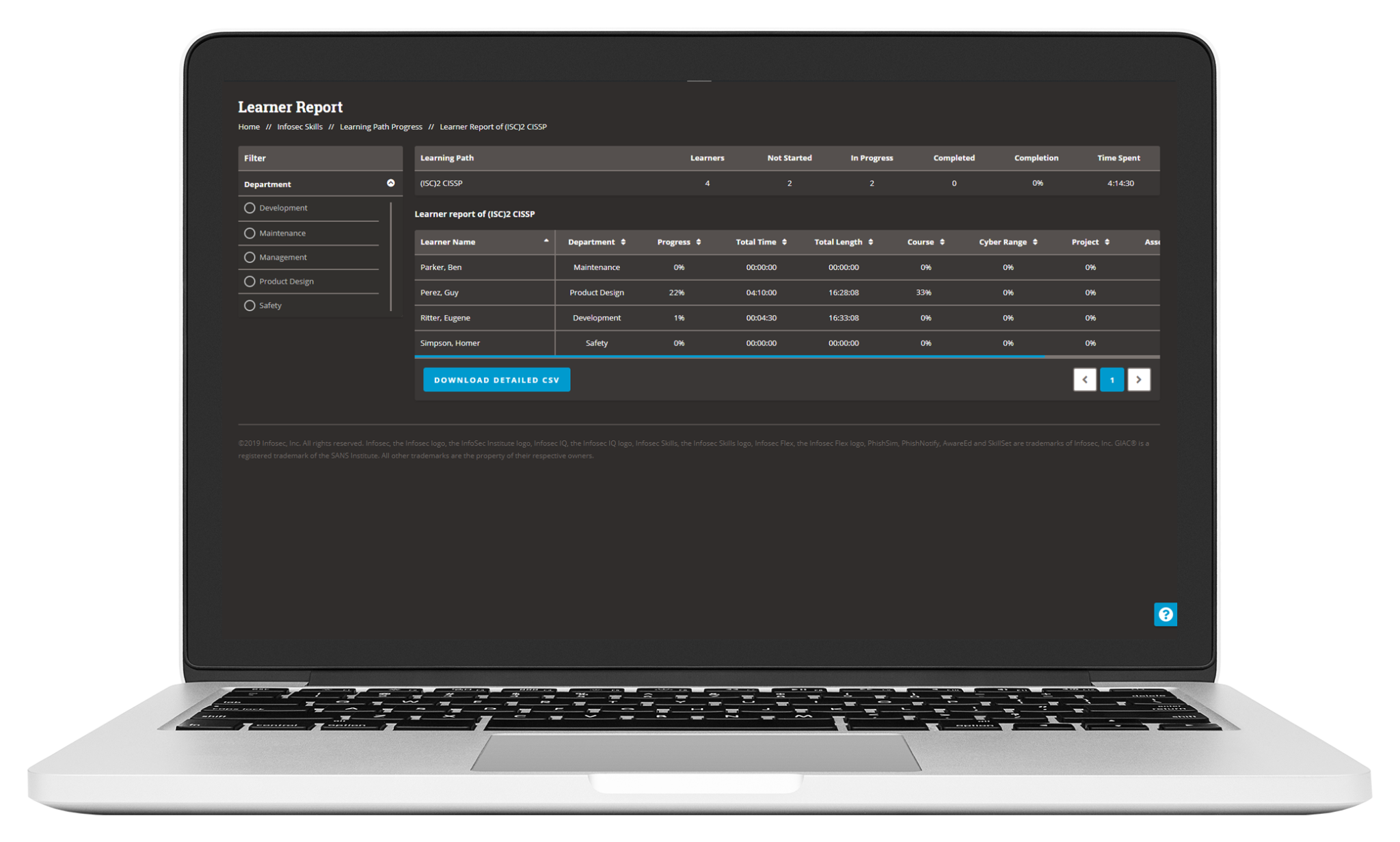Infosec Skills release: Close your skill gaps with team reporting and hands-on training
October 18, 2019
Team reporting features are live in Infosec Skills, giving administrators additional insight into their team’s learning progress and skill development. Four new hands-on learning paths were also added: Secure Coding Fundamentals, Network Traffic Analysis for Incident Response, Cybersecurity Data Science and an updated version of Ethical Hacking.
Get insight into your team’s training progress
With team reporting, you can get an at-a-glance view of your entire team’s training, including the total number of team members engaged in each learning path, how much time they’ve spent learning new skills, and the number of team members who are actively working on or have completed each learning path.
You can also drill down for a more detailed view at the department or individual team member level to see how they’re engaging in different training content along the path, including:
- Percentage of courses completed
- Progress on related cyber ranges or hands-on projects
- Scores from skill assessments and certification practice exams

To learn more about Infosec Skills’ team training features and get team pricing, request a quote.
New hands-on learning paths
Four new learning paths are now available in Infosec Skills. Build your cybersecurity knowledge and gain new skills through a series of trainings, hands-on projects and cloud-hosted labs. In addition to nearly 500 courses, a subscription to Infosec Skills includes unlimited access to:
- 50+ structured learning paths
- 100+ labs across four cyber ranges
- Assessments to test your knowledge and identify skill gaps
- Practice exams to prepare for your next certification
Most software vulnerabilities are caused by the same few development mistakes. In this path cybersecurity researcher Howard Poston demonstrates how to recognize vulnerabilities in code, how they are exploited by attackers (using real-world case studies of vulnerable applications in production), and how you can mitigate those vulnerabilities by writing more secure code.
Network Traffic Analysis for Incident Response
Learn about the tools and techniques used for analyzing network traffic. Cybersecurity researcher Howard Poston covers the identification and analysis of benign and malicious traffic, examples and case studies of extracting intelligence from traffic data, considerations when building a network monitoring program and techniques for collecting and analyzing traffic data.
This hands-on, comprehensive skill path covers everything from the fundamentals of cybersecurity data science to state-of-the-art machine learning. Among many other practical lessons, you will learn how to set up a cybersecurity lab, construct classifiers to detect malware, utilize deep learning technology and even hack security systems with the help of machine learning — all taught by cybersecurity data science expert Emmanuel Tsukerman.
This learning path teaches you the necessary hacking skills to conduct a formal penetration test. You'll build core pentesting skills such as intelligence gathering, reconnaissance, device exploitation, stealth techniques and more. Upon completion, you'll have the knowledge and skills to carry out a penetration test against an organization to identify weaknesses and potential avenues of attack.
For more information on upcoming features and content, see our Infosec Flex and Skills Product Roadmap.